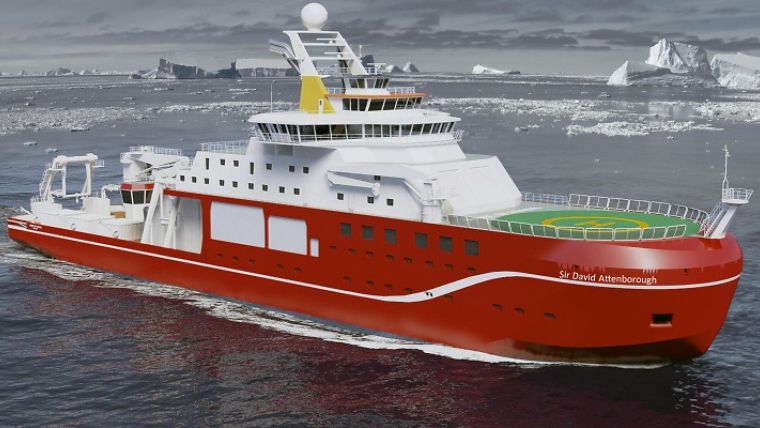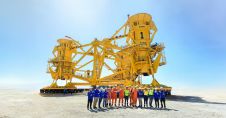What’s in A Name?
Social Media and its Influence on Naming a Polar Research Vessel
Research vessels are a huge investment. They are developed to meet current standards and even move the bar as they are also a national showcase of science and technology. The United Kingdom has been developing an Arctic icebreaker research vessel that will be operating in the North and South Poles exploring depths that are often hidden by a layer of ice, even though this layer is becoming thinner. The investment by the National Environment Research Council (NERC) amounts to GBP200 million. And of course, she needs a name.
This is where things get interesting as, instead of establishing a name, the NERC has decided that the community should have a say. They created an online tool for suggestions, and subsequently allowed people to vote for their favourite name: #NameOurShip. The name was to be inspirational, highlighting the purpose of the vessel’s mission as a state of the art science showcase for a country with its long-standing tradition of maritime research.
The voting lines were opened and plenty of suggestions were submitted and of course there were some original and funny ones. Iain Sayer suggested RRS What Iceberg?. RSS Notthetitanic was put forward by Pieter Pretorius. Then, suddenly, the site crashed. One name attracted attention and received a flood of votes: RSS Boaty McBoatface by James Hand. It ended up receiving the most votes: a total of 124,109 – way ahead of the runner-up RSS Poppy-Mai (Nicola Maher) that received 39,886 likes.
One would think that it’s clear, there is no doubt as to which name the international public wants this state of the art flagship to have! However, the judges probably had meetings expressing their concerns on the turn the poll took. Would the popular name fit the ambition to be inspirational and match the scientific tradition? How would it look moored in a port? Would this name express the nation’s pride in exploring the polar seas and oceans?
The concept of the online quest for a name was a great success. There has never before been so much enthusiasm for an ocean-going research vessel. One goal was certainly met, namely, making the public aware of NERC, oceanography and marine science in general. The wise men and women – including members of the House of Commons – questioned the outcome of the online poll and with frowned eyebrows wondered how they could acknowledge this overwhelming interest and still christen the vessel with a name that would reflect the investment made?
Finally choosing the name RRS Sir David Attenborough is in line with tradition and the principles of the procedure. It captures the vessel’s scientific mission and celebrates the contribution to natural science of the well-known broadcaster who celebrated his 90th birthday a couple of days after the naming was announced. The popular suggestion Boaty McBoatface will, however, still be used. It will be the name of the ROV operating from RRS Sir David Attenborough, which will collect data and samples from the deepest waters of the Arctic and the Antarctic.
I truly hope this experience will not discourage other organisations from opening up and asking the public for their opinions. The exposure for new developments in science and ocean science was huge, in a way different to how David Attenborough did this. It may not have been the predictable or preferred way, but it made it clear internationally what marine science developments are in progress and I’m sure this triggers interest in exploring the oceans.

Value staying current with hydrography?
Stay on the map with our expertly curated newsletters.
We provide educational insights, industry updates, and inspiring stories from the world of hydrography to help you learn, grow, and navigate your field with confidence. Don't miss out - subscribe today and ensure you're always informed, educated, and inspired by the latest in hydrographic technology and research.
Choose your newsletter(s)
























